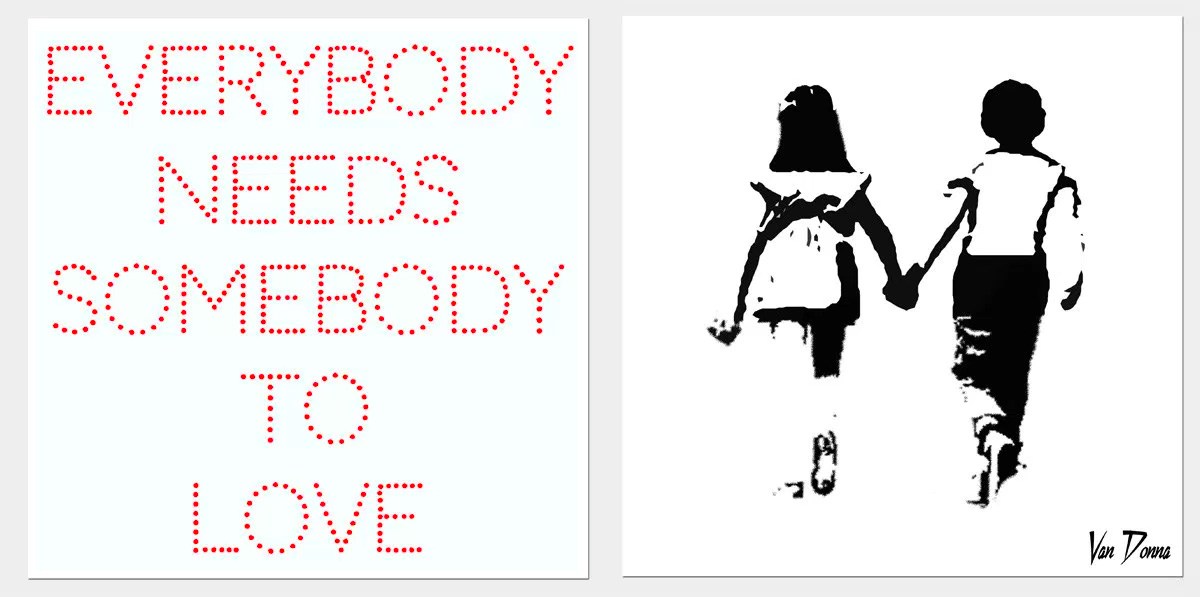Everybody needs somebody to love
In a world in which trust in government and corporate enterprises is illustrating concerning levels (More >), the role of relationships in our social and professional communities is vital. The need to find those we can trust and can rely on versus those we cannot. To find our family, friends or tribe.
Read via Jason’s LinkedIn – bit shorter and includes a relationship rant
Consistently across our research is the importance of our relationships with family (genetic or otherwise). Family can provide joy and frustration, but just knowing there are people there when needed has massive physical and mental health and other benefits. The minds of new borns are said to have their lifetime confidence formed from trusted relationships in their early life. Strong work and community cultures come from relationships and a sense of emotional obligation beyond the job specification or law.
As the Blues Brothers, Rolling Stones and others have repeatedly said …
“Everybody needs somebody.
Everybody needs somebody to love.
Someone to love.
Someone to kiss.
Sometime to miss, now.
Someone to squeeze.
Someone to please.
And I need you you you.
I need you you you.”
The relationships we have and love we need changes throughout our lives, yet as the song says “everybody wants somebody to love.”
Sadly, loneliness is becoming a global epidemic.
A lack of relationships and connection is shown to have a strong correlation with wide ranging negative health effects, hence the appointment of the world’s first Minister for Loneliness in the UK, Tracey Crouch, early 2018.
“The experience of loneliness is consistently linked to low self-esteem, reduced life satisfaction, anxiety, and depression. Chronic feelings of loneliness have also been linked to higher risk for cardiovascular disease, sleep problems, poorer immune responses, and even increased risk of suicide. In fact, higher levels of loneliness have been found to increase chances of mortality by as much as 50%. More generally, lonely people tend to experience high levels of negative emotion, engage in negative self-focused thought, and demonstrate ineffective social responding and withdrawal.” (More here >)
This is of particular concern among some segments of the population, such as older people, yet it is increasingly becoming widespread from young to old, which seems counter intuitive to the rise of social media connection.
There are many examples of leaders focused on the importance of relationships. They build fans, supporters and communities. They build trust, support and collaboration towards a shared vision. Brands building strong communities of support, and relationships with their customers (More >). Or, government and social enterprises helping to avoid the vulnerable being lost and ignored (More >).
Unfortunately with the seemingly increasing complexity of politics (i.e. the perceived need to be reelected) and business (i.e. the perceived need for constant growth), the importance of relationships can be too often ignored or actively discouraged. Relationships can be viewed as undue influence and/or unnecessary to achieving tangible strategic objectives.
In many ways as a society, as individuals, businesses and governments we are becoming more robotic and less about relationships. The focus is on risk mitigation and profit maximisation. People do matter, but this is likely more so to generate votes and revenue, than relationships of any real merit.
It is a fair assumption that most people do not really wish to have a particularly close relationship with the brands and businesses they use and governments they choose. Marketing science clearly prescribes that brands are more functional than emotional, and success is more so about mental and physical availability than any real level of compassion that might come with a relationship. Placing low importance on relationships is perhaps logical but also very sad.
We are now better able to measure people as clicks, impressions and views. But, such data can dehumanise those behind the click or no click. And, strategies can treat humans as morons or even scientific specimen. “If I pull this leaver, this happens.”
Social networks enable digital proxy relationships, then privacy breaches, frustrating algorithms and invasive advertising, removes the trust. Banks are increasingly closing regional and suburban branches and impacting small businesses and others who seek the trusted convenience of their local staff they have built relationships over years. Again, this is anti-relationships and pro risk mitigation and profit maximisation.
Selling becomes transactional. Call-centres spam a large volume of prospects at a minuscule success rate to hit sales budgets. Automated emails fire at high frequency to push sales, and push and push, and push (#unsubscribe). The digital team adjusts the triggers and fires again.
The world needs human-to-human trusted relationships. Strong human relationships build much needed trust. Business and government simply delivering on promises. Human connection with associated cognitive benefits. An awe inspiring future will come from humans building relationships and co-creating. Establishing relationships that may start on a social network or more likely real world networking, but then allow the dots to be connected. Collaboration opportunities ignited, and the trusted partnerships seeded, and friendships that allow for candor and symbiosis.
The most valuable asset any business, government, professional or individual can invest in and build is its relationships. It may seem cliché but true success in business and life is a marathon not a sprint. A long game of learning and developing lessons, insight and wisdom, and seeding and nurturing relationships of like minded friends, family, staff, suppliers, customers and connections, who when cared for grow into an invaluable asset.
Relationships build trust in our governments and corporates. Business to business (or business to government) is more likely to drive significant positive change with deep empathy and care beyond contractual obligation. Psychologically safe communities and work cultures are built on strong shared vision and values. Families, friends, workmates, leaders, clients and customers there if and when needed.
Critical in this is that the vulnerable are supported to build critical relationships necessary for a solid quality of life, community and wellbeing.
We likely need the intervention of the likes of Ministers of Loneliness, or even Ministers of Relationships, Togetherness and Opportunities. This is essential innovation. The world needs more relationships. That start from a seed and grow to build strong communities, businesses and governments.




